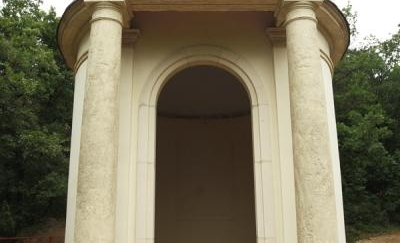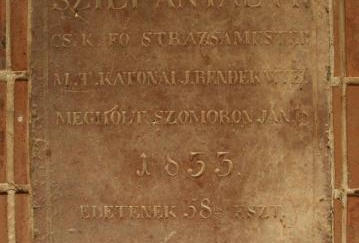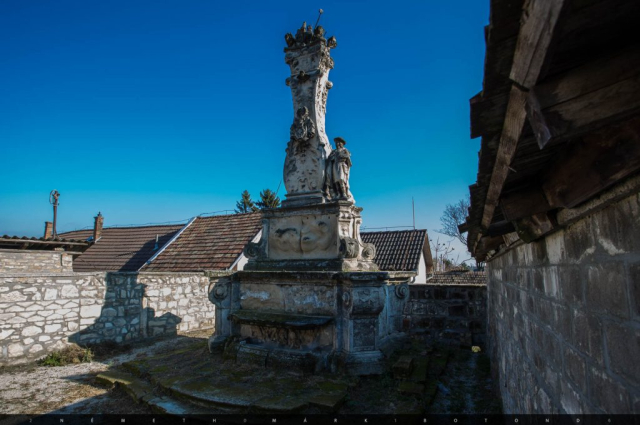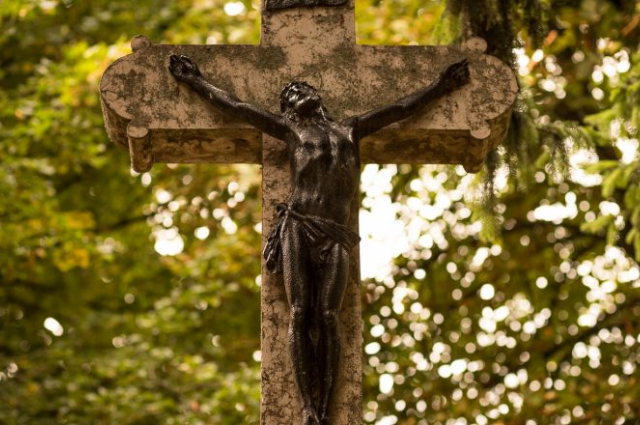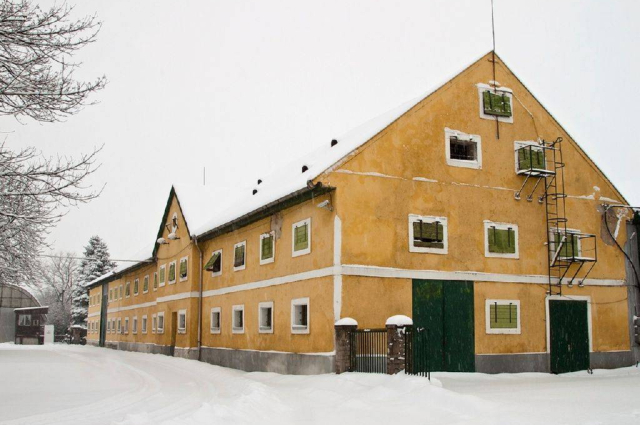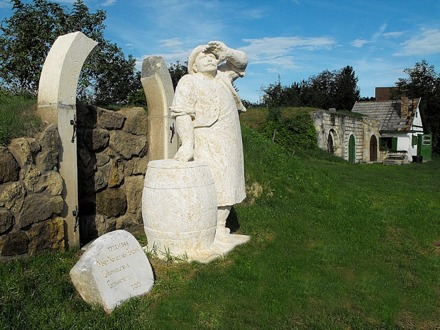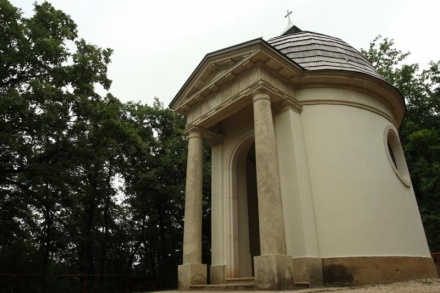
St. Wendelin Chapel
The St. Wendelin Chapel was erected by József Szily at the beginning of the 19th century.
We come across the first mention in the Canonical Visitation of the diocesan bishop’s visit in 1817. The chapel was damaged in 1944-45, despite restoration efforts the empire altar and the altar picture depicting the eponymous St. Wendelin could not be saved.
The special, circular chapel is located between Bia and Torbágy on the steep, forest mountainside near the vineyards, in the Iharos part of the forest. The Classicist facade is decorated by two wall pillars and two freestanding columns. The pillars underpin the bridge system (architrave) – furnished with decorative elements (triglyph) – and the guardian stone tympanum.
The column forecourt leads to a semicircular-closure high gate. Graceful, hidden, iron-grid oval windows can be seen on both sides. The dome covered with articulated eaves and curved-line tiles used to be decorated with a four-sided tinplate (a turret on the dome with windows for interior lighting).
The interior of the structure has a circular layout, dome-vault space. The gravestone produced by Antal Szily in 1833 can be seen in the middle of the floor and the Szily family tomb is under the terrace designed as a roundel in front of the chapel.
The chapel was partially restored in the 1950s and 60s. It is now owned by the Hungarian state and operated by Pilisi Parkerdő Rt. The chapel was renovated in cooperation with the Association for Ill-Fated Monuments and Pilisi Parkerdő Zrt. by Biatorbágy Local Government, the Government of Hungary, Pest County Local Government, the Office for Cultural Heritage Protection, and with the support of local citizens and companies, the Biatorbágy Foundation for Culture.
ST. WENDELIN CHAPEL
Biatorbágy, Iharos utca
GPS: 47.460563,18.843344
Similar results
Statue of Immaculata
2072 Zsámbék, Zichy térThe monument erected by Miklós Zichy in 1739 stands opposite the palace. The richly-decorated Baroque monument erected at the...
MoreRoadside crosses
A templommal szemközt és a Petőfi utca végébenThe roadside crosses were usually erected through individual commitments or gratitude, while at the same time they often...
MoreGerman Nationality Memorial
2072 Zsámbék, Józsefvárosi pinceterület (gödör)The work by sculptor Ferenc Máhr, the German Nationality Memorial, depicts a winemaker standing next to a barrel.
More